Text
I'm a knitter. I sometimes knit socks.
I have recently got back into doing some writing. This writing has been multi-chaptered.
So, here is a trick I am going to share that I learned from knitting socks. There is a thing called "second sock syndrome" which is when you finish one sock but can't seem to get around to starting the second. So, when I finish a sock I IMMEDIATELY cast on the second sock and just knit a few rows.
So, when you finish that chapter, IMMEDIATELY just write one sentence of the next chapter. Trust me.
25K notes
·
View notes
Text
Whole-heartedly BEGGING writers to unlearn everything schools taught you about how long a paragraph is. If theres a new subject, INCLUDING ACTIONS, theres a new paragraph. A paragraph can be a single word too btw stop making things unreadable
104K notes
·
View notes
Text
also for real. if any worldbuilding at all bores you to tears you are probably either 1) writing in the wrong genre, or 2) doing it in the terrible way that terrible writing advice bloggers were telling you to do in 2012 instead of the cool way
325 notes
·
View notes
Text
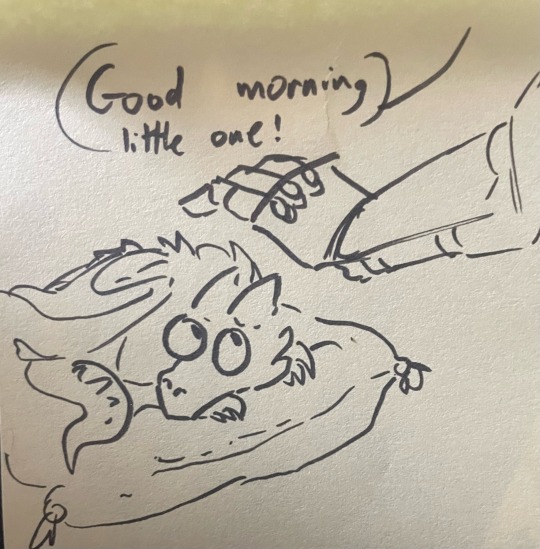





a cute but disastrous old habit between a dragon and her foster knight
98K notes
·
View notes
Text
ok im writing. what the hell happens after The
644 notes
·
View notes
Photo
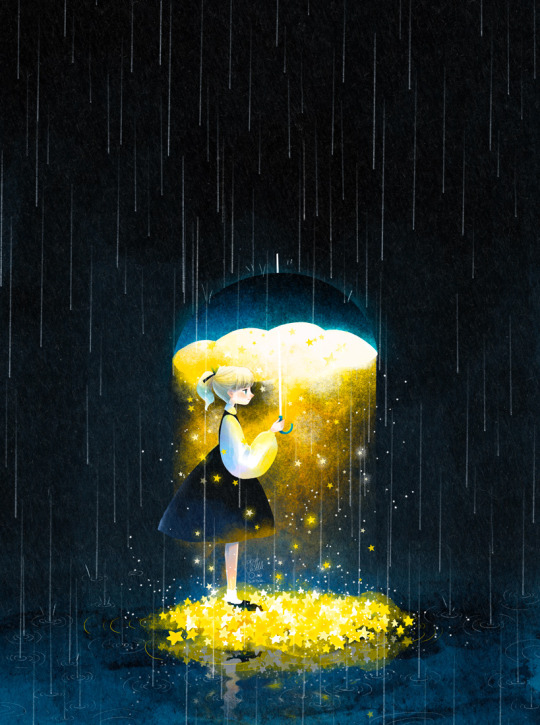
if the world is dark
I’ll light up for you
It won’t be endless rain
but infinite hope
Instagram | Twitter | Facebook | Behance
5K notes
·
View notes
Photo
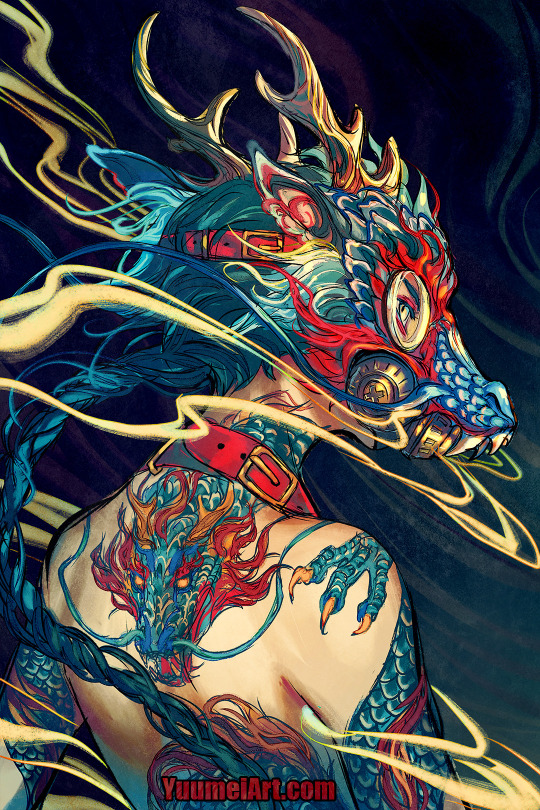
Revolt
Continuing my animal gasmask series~ I was thinking of a ram or a tiger next. What would you like to see?
HD file and video process of this image will be on my patreon.com/Yuumei
6K notes
·
View notes
Note
Where did your fascination with dragons originate from?
That's a really good question,, and I've been thinking about it, and I don't really know? Like I watched Dragontales when I was little, maybe that was it? (I'm not sure if that was just a Canadian thing or not though), and I read eragon when I was like 10, and that definitely contributed. I remember drawing a dragon for the first time when I was about 10 too, and well, not they're basically all I draw...
Overall, I just don't know😅 I just think they're cool. What about you?? Any long lasting obsessions?
7 notes
·
View notes
Photo


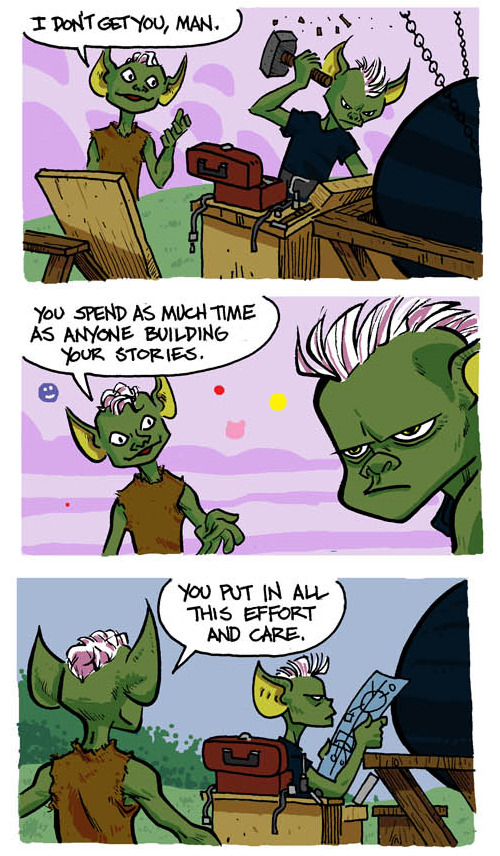

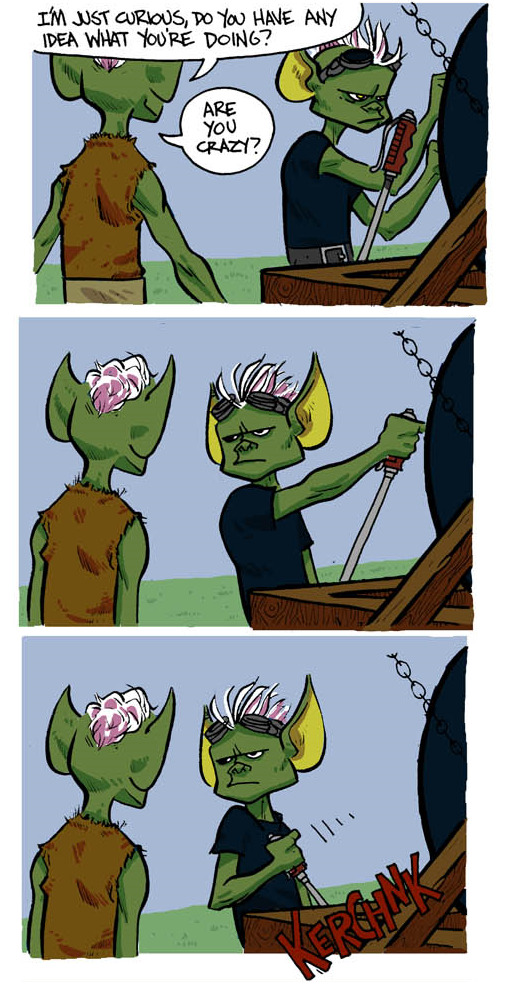




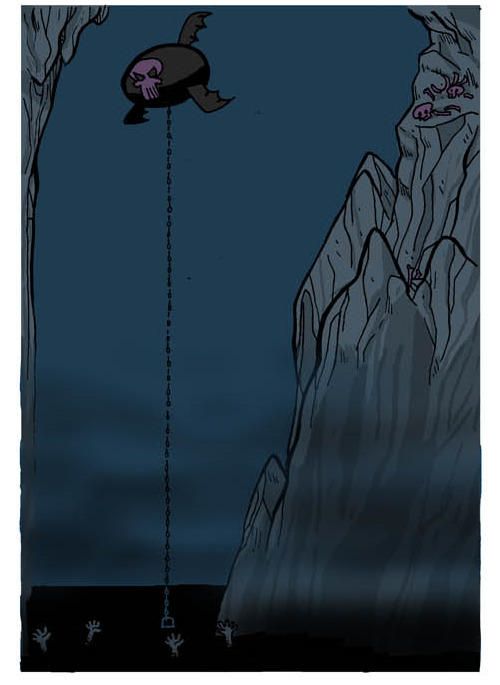

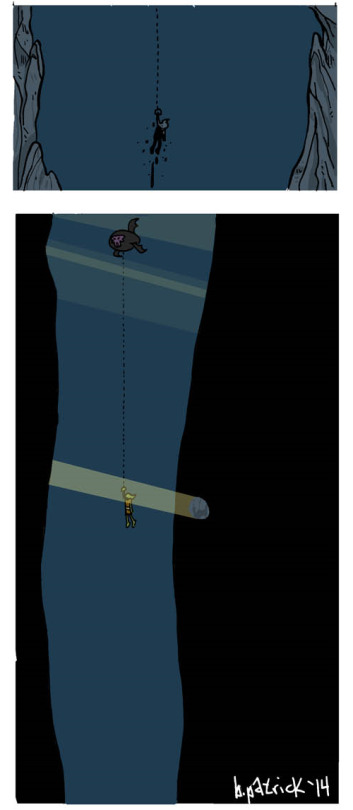
Different Stories Resonate with Different People
484K notes
·
View notes
Photo

Maybe you’ve gone to space
Maybe you’ve won a race
Maybe you’re just full of grace
Well I grow clovers on my face
Happy St. Patrick’s Day!🍀
5K notes
·
View notes
Text
instagram
I made an instagram to share quotes from my writing! It doesn't have much on it yet, but I'm hoping to/planning to update it frequently
I'm not really sure what else to say about it? Mostly that I would really appreciate any follows if it's something you'd be interested in (or if people use instagram. Is there a big overlap between people who use tumblr and people who use instagram? I don't know)
The username is emily_writes_stories though, if you're interested, and I think the picture is also a link? I don't know, I'm not good at technology 😂
0 notes
Text
Hello, so I haven't actually shared a lot of my writing on here? Mostly because I do want to publish someday, and I wasn't sure if I wanted to go with traditional publishing or not and how that would work if I'd posted my writing online, anyways I think I've basically decided that when I do publish (probably not for a few years at the very least) I'm gonna go self pub, so I guess I can do what I want
Anyhow, all that to say, here's the first chapter from The God Complex, which may or may not be getting its title changed
Chapter 1: Fel
A hair thin crack spiderwebbed across the ceiling. Fel traced it with his eyes for perhaps the billionth time, ignoring his uncle droning on about how much the people loved him. If only he would leave, Fel thought. He rolled over onto his side, facing away from Lus-in. No other privacy was afforded to him in his small cell.
The door scraped open. Another prisoner. Her sobs nearly drowned out Lus-in’s boasting. A female prisoner being brought to such a high security level was an oddity. Fel sat up and stretched, glancing at her, he hoped without his bastard uncle looking. Or worse, his uncle’s silent shadow.
Lus-in noticed. “Put her in the cell next to my beloved nephew’s.” He grinned, his teeth yellow and chipped. “What do you think I should do with her?” he asked Fel. “I haven’t quite decided yet.”
Fel rolled his eyes and turned away. He’d execute her sooner or later. He wouldn’t give his uncle the satisfaction of seeing him care about the girl.
Lus-in chuckled. “Enjoy the obnoxious crying.” He stood, shoving the chair back loudly. The cloaked man who silently followed his uncle everywhere stared at Fel for a long moment, his dark eyes glistening from the depths of his hood before turning silently after his master. The soldiers followed behind them, the door closing behind them with a bang that felt like doom.
The girl lay face down on her small cot, her body shaking from sobs which had grown nearly silent. Blood stained her blonde hair rust-red. Fel couldn’t tell what colour her clothing had initially been. She must have been in the torture chambers for days, if not weeks.
What could a tiny girl have done to merit so much attention from Lus-in? At least, he thought she was a girl, based on her size. He guessed she would have been far shorter than his shoulders. Perhaps that was normal height for women though. He hadn’t seen many people other than Lus-in and his soldiers for decades.
He huffed. No. He would not be curious about the girl. He would not care about her. She was going to die sooner or later, and the kindest thing he could do would be nothing. Caring would just give her a slower, more painful end.
And he would have to watch every minute of it.
Sleep slipped away from him. The girl was crying again.
“Be quiet. Crying won’t do you any good.”
The wails shrunk into sniffles. “It hurts.”
“Torture does that. Be quiet. I’m sleeping.” Minutes passed. Sleep had nearly embraced him when the girl spoke again.
“I’m Fa’it. What’s your name?”
This blasted girl. She’s just afraid, Fel reminded himself. She’s looking for a friend; someone to help bear her burden. But I can’t do that. I can’t be her friend.
He kept silent. Maybe she would think he had fallen asleep.
“How long have you been here? Do most people stay here very long?”
She didn’t think he was asleep. Fine. He would just let her think him rude.
“Why won’t you talk to me? I know you’re awake. I can hear you breathing. It sounds different than when you were asleep.”
He’d need to fix that. If he wasn’t fooling a girl who’d only had hours to observe him, he’d likely never fooled Lus-in.
Once again, he was nearly asleep, when the girl started singing.
Long ago when dragons roamed the skies
When we were free to take a stand and rise
When honour was revered
When hope was free for all
When will those times return?
When will I be free?
When will children dance and sing?
One day we will stand and rise
We will not stand for tyranny
We will raise our battle cry
And then we will be free
A shiver ran down Fel’s spine. Her voice was beautiful and clear, like a mountain stream. Or at least, Fel thought that was what a stream would sound like, if only he could hear one again. This girl was a revolutionary. She dreamed of freedom--fought for freedom. That was why she’d been imprisoned. That was why she was in the cell next to his--to destroy every last bit of hope he had. To prove to him that Lus-in was stomping out any sliver of rebellion.
To prove that Fel would never be free.
To prove that Fel could never make things right, never rescue his family from disgrace.
The door clanged open, and soldiers marched into the hall stretching between the cells. Lus-in came near the end, all the soldiers standing at attention as he entered.
“A little bird was singing such a dreadful song. I do so hate songbirds.” He came to a stop before the girl’s cell. Her eyes were wide with fear, clearly visible through the transparent enclosure. Lus-in motioned to one of the soldiers following close behind him. She stepped towards the cell with catlike grace and placed her hands on the unbreakable glass-like substance. It melted under her hands and flickered out of existence.
Several soldiers grabbed the girl, holding her still so she couldn’t run, couldn’t fight. One forced her jaw open. A wordless, fearful scream ripped from her throat as Lus-in drew a dagger. “I absolutely cannot abide songbirds.” He passed the dagger to his shadow, who stepped towards the girl, blade held high.
Fel hid his face, his stomach churning, as the girl’s scream became a wet gurgle. He’d taken her tongue. No one would ever hear her beautiful voice, her beautiful song again. She’d endured torture and interrogation, but now Lus-in was toying with her, showing that he viewed the people’s lives as worthless.
The soldiers threw her across the cold floor, laughing. She lay wrapped around herself like a small child, choking on near-silent sobs. “She dies tomorrow at noon,” Lus-in said.
Hours passed. Sleep eluded him, though it seemed the girl--Fa’it, he had to remember her name--had fallen unconscious from the pain and shock.
Monster.
Demon.
Uncle.
He played with Fa’it like she was nothing, what more had he done to the rest of Fel’s people? He hadn’t even done anything to stop him.
Weakling.
Coward.
Disgrace.
No more. He would not be weak. He would not be a coward. He would regain his family’s honour. He would slay the beast, and destroy Lus-in.
But not yet. Nothing could break through the diamond hard glass of the cell walls. The soldiers would overwhelm him through sheer numbers, even with his magic. Magic which he hadn’t used in years. Did he still have it?
The chill from the tiles crept in through his bare feet. He crouched down, back turned to the door. Vulnerable. His breathing deepened, and within his cupped hands grew a shadow darker than the darkest night. It swirled lazily out of his hands, falling to the ground.
A manic grin stretched across his face. The gods still deemed him worthy. Or perhaps, they were giving him the chance to become worthy of such power. The shadow grew and stretched, until finally Fell held a dark sword in his hands. He dropped it, and the darkness dissipated to the corners of the cell, under the cot and water jug beside it.
One more night. One more morning. And one more execution.
Lus-in’s end was just beginning.
Morning came slowly. No morning sun breached the prison’s walls, but when soldiers arrived to take Fa’it away, he knew it wouldn’t be long.
More soldiers, including the woman who could melt cell walls, arrived. She opened a doorway into Fel’s cell. In came the soldiers, who stripped him and threw buckets of freezing, soapy water at him. They held him down and shaved off the beard that had grown since they had prepared him for the last execution. He didn’t fight them; this was all routine. How many executions had he been made to attend? Hundreds? Thousands? All of them.
Script covered chains were locked around his wrists and ankles. A soldier prodded him forward, out the door and down numberless flights of stairs. Servants rushed out of their way, a few casting fearful glances at him. Surely wondering why Lus-in always brought out the long-haired, red-eyed madman for each and every execution.
Let them wonder. The questions would cease when he took his rightful throne as king and righted the atrocities Lus-in had committed.
The sunlight seared Fel’s eyes, blinding him. He stumbled to the steps of the dais where Fa’it would be executed, and where he would watch, blinking spots out of his eyes. Sweat dripped down his spine. The hot summer sun beat down on him, almost making his ghostly skin glow.
He surveyed the crowd gathering. His people. His family’s people.
Not long now.
2 notes
·
View notes
Photo
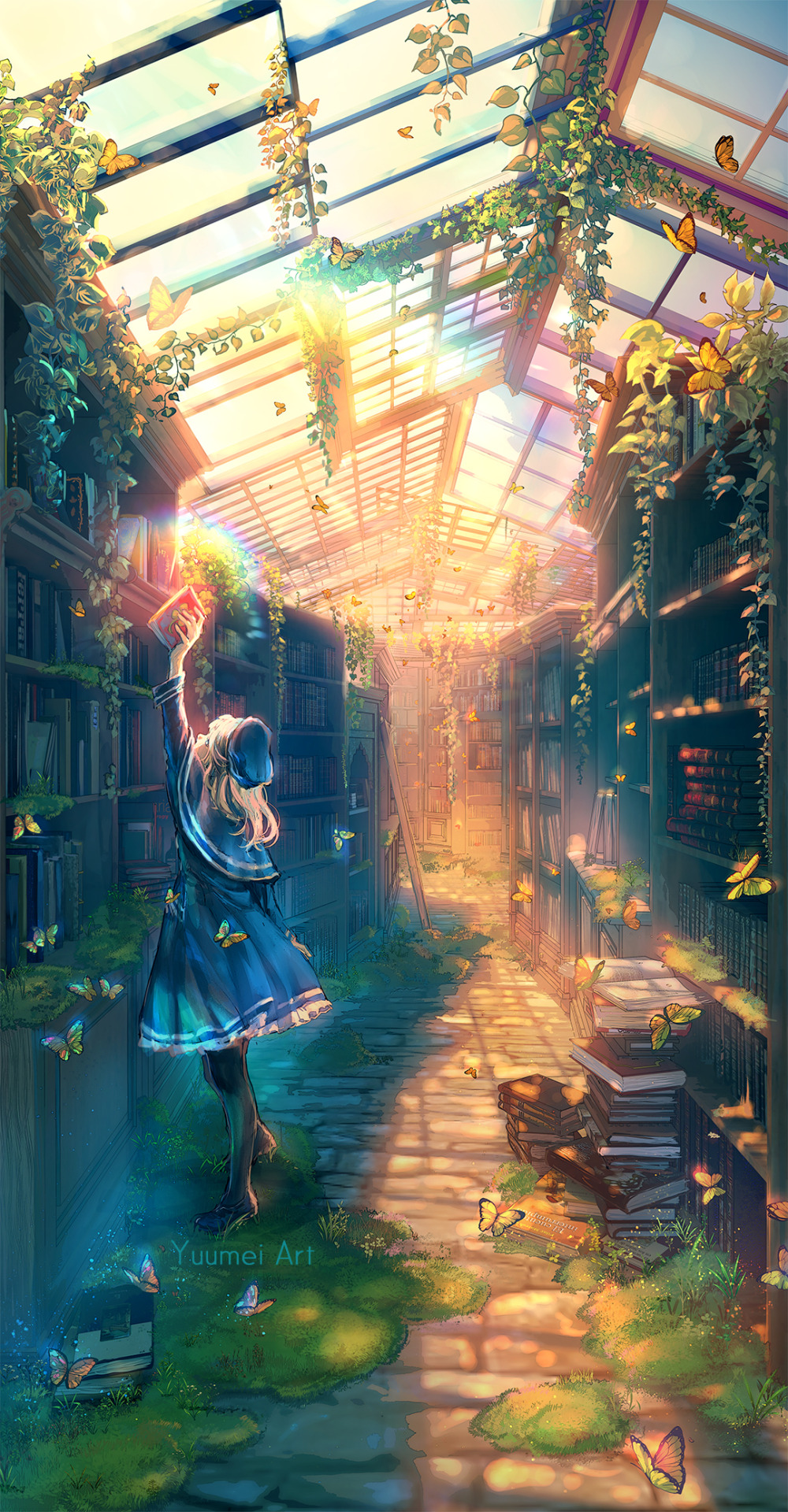
“I know just the book you’re looking for. Here— don’t mind the moss, it’s part of the magic. But remember, you must return it by the due date, or the butterflies will find you.”
8K notes
·
View notes
Text
Your OPSEC is Bad and You Should Feel Bad
Okay so one of the many things that drives me absolutely nuts about most TV shows and (some) books that involve secret or classified information or secure facilities is how absolutely not secure everything is, so these are a few basic things that people get wrong:
You can't carry around classified information. There are, I assume, exceptions in specific cases, though they are assuredly very carefully managed, but random intel agent #12 cannot legally just take home classified information so they can work on it at home. That's incredibly illegal. And that's for a reason--secure facilities are, as the name suggests, secure. Everywhere else is varying levels of not secure. Even for people working with regular business or government materials on their work phone or laptop, there are varying levels of strict rules about where you can leave it, how to report a lost device, and not keeping it in checked bags.
Badges should be innocuous and limited in visible information. Any sensible security system doesn't have badges that are numbered/colored/otherwise identified by access level, because that is a really easy way to identify targets for thieves/people who want to break in. American federal ID cards (CAC for military, PIV for civilian) have really specific layouts. Some companies distinguish between full time employees, interns, vendors, etc in their cards.
Badges shouldn't be displayed outside of the office. This is not really followed by real people (if you get on the metro on DC you will see a wide variety of visible badges), but displaying a badge is not security-wise because 1) it makes them easier to steal, and 2) it can make you a target.
Names/access level/information shouldn't be openly announced. I'm looking at you, MCU Spider-Man fanfiction. Just. Don't.
Confidential/classified information shouldn't be openly discussed. Stop having your characters talk about confidential or classified information in front of people who shouldn't know it, or even just out in the open at all. They shouldn't be telling their parents, their friends, their spouses, etc. Even businesses or government buildings that deal with sensitive information, there may be spaces where certain things can or can't be discussed, and employees/contractors will go through approximately 8 million trainings on where you can't discuss certain information. This also involves erasing whiteboards, locking computers, etc.
You can't have cell phones in certain secure facilities. People shouldn't be having their cell phones with them in SCIFs. This prohibition extends to all things that can be recording devices, including furbies.
#this is actually really interesting and also most books and movies are not very realistic at all apparently#not that that's really surprising
18K notes
·
View notes
Text
Defining and Developing Your Author Voice

Previously I talked about the differences and similarities between the author's voice, narrator's voice, and characters' voices. I decided that my voice equation could actually work at any of those levels:
What the Person Thinks or Talks about + How He Talks about It = Voice
Voice is essentially that person's personality and how that is rendered on the page. On some level, there is some overlapping of the characters' voices, narrator's voice, and author's voice--and ultimately, the former two types fit into and help make up the author's voice.
Like any kind of voice, defining and nailing down an author's voice can feel a little elusive at first, especially if the author's work varies widely and his or her writing has evolved over the years. How do you figure out your own author's voice? And do you need to work at finding, gaining, and developing it?
First, let's revisit what was stated in our previous post about the writer's voice.
The Author's Voice
What the Writer Thinks or Says + How She Says it = Author's Voice
You are a unique person. You have unique experiences, a unique personality, a unique worldview, a unique belief system. There are particular types of stories (or genres) you like to write--whether that's wide-ranging or narrow. There are particular tropes you are drawn to and perhaps types of people or places you like to write about. There are types of themes you like to visit. Maybe you enjoy writing protagonists that have positive change arcs.
There are also particular types of stories (or genres) you don't want to write--whether that's wide-ranging or narrow. There are particular tropes you turn away from. There are certain types of people you'd rather not write about or types of places you have no interest in. There are themes you don't wish to touch and arguments you don't believe in. Maybe you dislike writing negative steadfast arcs for protagonists.
All of these things help make up your voice as a writer.
But it's more than that.
There is a breadth and limit to your lexicon. There are sentence structures you like using more than others. Maybe you like using lengthier, more poetic and meaningful descriptions. Or maybe you prefer simple and straight-to-the-point descriptions. Maybe you are prone to choosing metaphors that come from nature. Or maybe you only ever tell stories in first person. Or maybe you prefer having protagonists who are female. Maybe you like to always add at least a little romance to it. Maybe you use dashes more than most writers.
There are also things you may never write. Perhaps because you dislike profanity, you'll avoid using the f-word. Instead of having sex scenes, you always "fade to black." You almost never write long descriptions. You'll probably never tell a story in omniscient viewpoint. You'll never use a semicolon--you hate them.
How you tend to tell stories also makes up your author voice.
If we pick up a book by Mark Twain, we know what kind of places and people and themes and plots and language to generally expect. Same goes for Jane Austen. Same goes for Rick Riordan. William Faulkner. Dan Brown. C.S. Lewis.
Sure, some may have a wider range than others, but they still have their limits. Jane Austen wouldn't write a Dan Brown book.

Defining Your Author Voice
In order to try to define your own author voice, it might be more helpful to first look at what kinds of stories you don't have a desire to write. For example, I have zero desire to write a western or a spy thriller. Now, that doesn't mean I never enjoy those stories as an audience member, I do. I just don't want to write them. I also tend to be a more spiritual and optimistic person, so I'm probably unlikely to write negative or pessimistic themes. However, I can still enjoy stories with negative and pessimistic themes.
What won't you put on the page? For example, I'll probably never write the f-word in one of my books. And I'll probably never write an erotic scene. (Now, that doesn't mean I'll never read a book with the f-word in it.)
To get an idea of your own author voice, first look at where these boundaries lie. Hit the big, heavy things, first--would you write about rape? Pedophilia? Would you write about a protagonist who is a murderer? Would you write the f-word? How frequently? Many writers have no problem writing any of these things. Some writers would hesitate on writing them. And some wouldn't touch them with a 10-foot pole. Some would write about the content, but in a way that is very veiled and delicate. Whatever the case, starting with these will likely help you see where your boundaries are or aren't compared to others--which helps define your voice. We only know what something is, because of what it isn't.
Next, look at the work you have produced or are producing. What are the similarities? I almost (though not always) write stories that have a fantastical element. And like I said above, I tend to prefer optimistic themes, and I almost always want some mystery in it, even if it's on the sidelines.
Instead of looking at everything as either-or, it might be helpful to look at it as more of a spectrum. "I often include romance" vs. "I always include romance," for example.

Being True to Yourself
Let's be honest, some of us are the rebellious types, and that's okay. But the moment we hear about "defining" ourselves, we feel like we've been shut in a box. We feel like that actor who always gets cast in the same roles.
I've been there.
Let me tell you how that went.
I sometimes hated the idea of even being defined by a genre, even something as broad as "speculative." So I'd try to write something totally different from my previous story. This isn't necessarily "wrong"--there is nothing "wrong" with writing different things or being experimental. But maybe I was doing it for the wrong reasons--to "prove" something, instead of just writing what I truly wanted to write.
Another time, I had a critiquer that I essentially let steer my story into what he'd write because I trusted his perspective. He wrote in a different genre, and mine ended up having this pessimistic theme with a negative outcome. Not necessarily "wrong," but I probably wouldn't have written the story that way if he hadn't pushed for it.
Are these stories a true, accurate reflection of me as a writer? Probably not.
One may argue they make up my author's voice, which in some sense is true, but is it my authentic author voice? Probably not so much.
They came out as a reaction to not wanting to be labeled, boxed in, or from following someone else's author voice.
Now, I'm not gonna say that's always bad.
But when you find yourself with that spirit or in that situation, I want you to ask yourself: Does this story actually embody what I authentically want to write? Or am I writing it to "prove" something? Or please someone else?
If so, am I okay with that?
Normally, it's best to be true to yourself.
We all remember those child actors who became adults and went and did something extreme to "prove" they weren't stuck in a box, but I won't name any names (*cough cough* Daniel Radcliffe *cough cough* Miley Cyrus *cough*). (And one of those two later came out and said she regretted it.)

Developing Your Author Voice
Do you need to learn and work at gaining your author voice? Is it something you find? Or something you are? Do you develop it?
There are different opinions on this in the writing community, but I think that's really because people are looking at the questions from different perspectives. Your author voice comes from you. You may need to gain more experience and insight into yourself, and you may need to get to know your authentic self more (like Miley Cyrus apparently should have). It's hard to be true to yourself when you don't know who you are.
. . . Or maybe you don't need to do all that. Maybe it all simply bleeds through into your writing subconsciously. You simply know what you will or won't write and what's authentic to you, and maybe for you, that's enough.
Some writers may experiment with different types of stories before they find what they really want to write. Dan Wells kept writing fantasy until his critique group pointed out that actually, it sounded like he wanted to write horror. Turned out they were right. (So, there is a contrasting story to my critiquing experience.)
It can be helpful to understand your boundaries and preferences like we explored above.
If you aren't totally sure what those are yet, then one might argue you are still "developing" or "finding" your author voice--just as some people say you are "developing" or "finding" yourself.
But if author voice is who you are and what and how you write, do you even ever need to change the way you write?
Let me explain what "author voice" should not be: poor communication and bad writing.
Someone out there in the vast world wants to argue that they don't need to improve their writing because that's just the way they write and that's who they are.
You can be any type of person who writes any type of thing, but you still need to learn to write it most effectively, you still need to learn the craft, you still need to learn to accurately communicate. You still need to learn to write.
This is what people mean when they say things like, "You just have to write a million words of crap before you find your voice."
What's really happening is that as you keep practicing and learning to write, not only will you write better, but you'll also discover preferences, tendencies, likes, and dislikes. You'll discover you love dashes more than others, and hate semicolons. You'll come to the conclusion that flowery language is too distracting from the story. You'll realize you prefer just about every line being told through the character's viewpoint.
It's hard to definitively know these things and develop these preferences, if you don't have a lot of experience. That's like saying you decided plain chocolate ice cream was your favorite flavor, when you haven't even tasted ice cream yet. You haven't even had vanilla or cookies'n'cream or strawberry or mint yet. Maybe you intuitively know plain chocolate ice cream will be your favorite, but maybe someday you'll taste something else and realize it's your favorite.
Still, there are some things you know you will never taste because you know you'll hate it--like bubblegum ice cream, because you hate bubblegum.
It's all sorta like that.
So in some sense, you do find and develop your author voice, but in another sense, it's just you.
Maybe it's better said that you refine your author's voice, so that it clearly, most effectively communicates your true, authentic self.
101 notes
·
View notes

